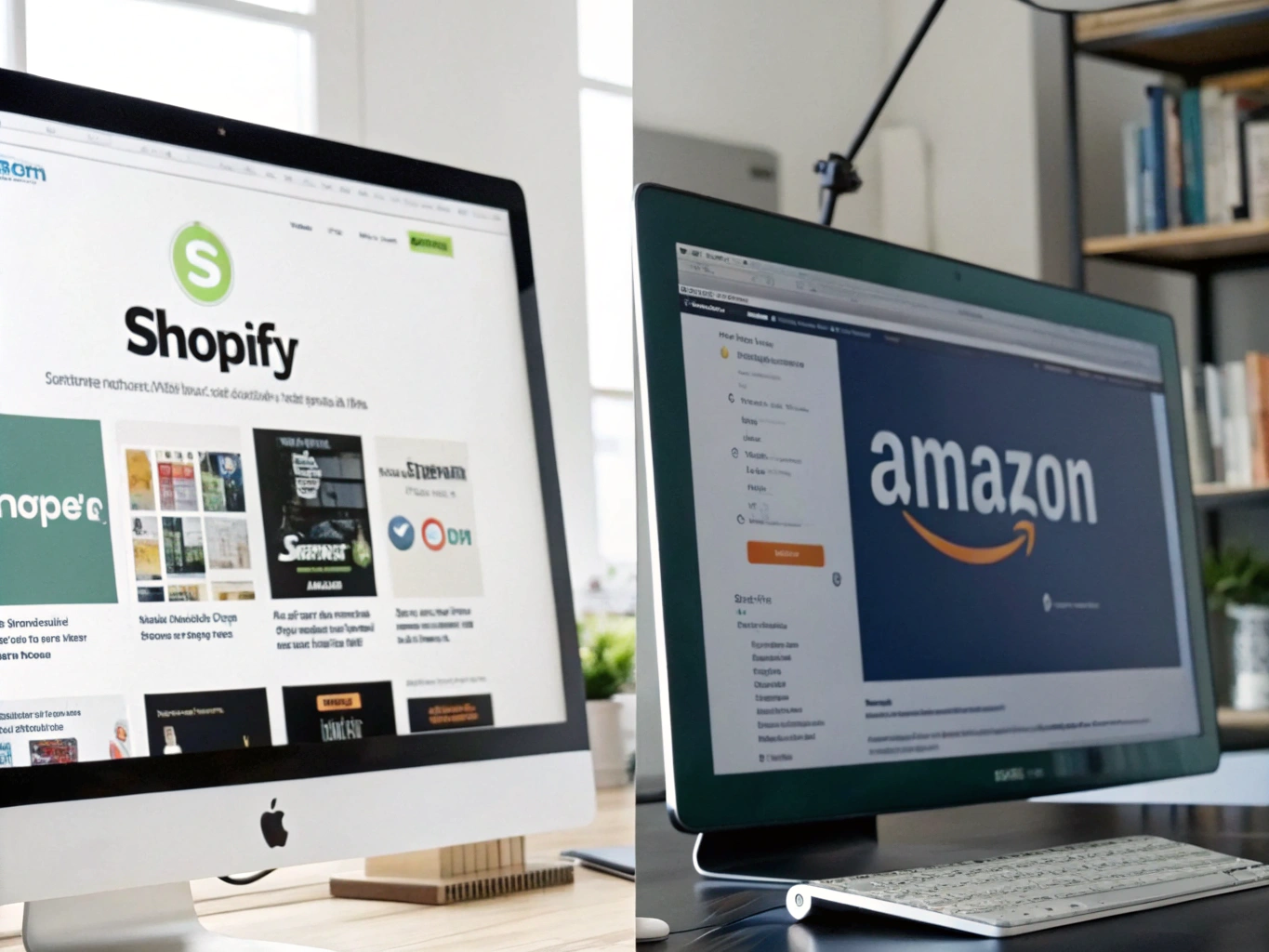When you’re diving into the world of e-commerce, choosing the right platform can make all the difference. Both Shopify and Amazon offer unique opportunities and challenges for business owners. If you’re wondering which platform could better serve your business goals, you’re not alone.
Let’s explore the shopify vs amazon debate and uncover how each can impact your business strategy and growth.
Understanding the Platforms

Starting with the basics, Shopify is a dedicated e-commerce platform designed to empower you to create an online store with ease. It provides tools for branding, customization, and customer engagement, offering you full control over your store’s appearance and operations. For a detailed comparison, you might find Ecwid vs Shopify: Unraveling E-commerce Stories insightful.
On the other hand, Amazon is a massive online marketplace where you can list your products alongside millions of others. It provides access to a vast customer base but offers less control over your brand’s presentation and customer interactions.
Business Strategy: Control vs Reach
Your choice between Shopify and Amazon often boils down to a fundamental strategic decision: Do you prioritize control or reach? Shopify hands you the reins, allowing you to build a unique brand experience. This can be especially beneficial for businesses that want to establish a strong brand identity and foster direct relationships with their customers.
Amazon, however, offers unparalleled reach. With over 300 million active customer accounts, it provides instant access to a global audience. This can be a significant advantage if you’re looking to scale quickly and tap into a broad customer base without the need for extensive marketing efforts.
Growth Implications: Building vs Leveraging
Choosing Shopify means committing to building something unique. You have the opportunity to craft a tailored experience that resonates with your audience. However, this requires a solid marketing plan and ongoing efforts to drive traffic to your site. Statistics show that e-commerce sales are projected to reach $6.4 trillion by 2024, and having a standalone store can help you carve out your niche in this growing market.
Amazon, conversely, allows you to leverage its existing infrastructure and customer base. It’s a great way to grow your sales volume quickly, but it can also mean competing with numerous sellers, sometimes even Amazon itself. Recent data suggests that over 50% of all online product searches now begin on Amazon, highlighting its dominance in the e-commerce space. You can explore more topics in our Blog Archives – theOnceandFuturePodcast.
Cost Considerations: Fees vs Flexibility
Cost is another critical factor in your decision-making process. Shopify requires a monthly subscription fee, but in return, you get full control over pricing and promotions. This can be a significant advantage if you want to experiment with different pricing strategies or offer exclusive deals.
Amazon charges fees for each sale made on its platform. While this can add up, it’s important to weigh these costs against the potential sales volume Amazon can generate. Additionally, Amazon’s fulfillment services can streamline your logistics, saving you time and resources. For advice on editing product images, refer to How to Remove Backgrounds from Images.
Actionable Business Recommendations
As you weigh your options, consider the following actionable steps to guide your decision:
- Define your business goals: Are you aiming for brand building or immediate sales growth? This will help steer you toward the right platform.
- Assess your resources: Consider the time and money you can invest in marketing and operations. Shopify requires more upfront effort, while Amazon offers plug-and-play solutions.
- Evaluate your product: Some products perform better in a branded environment, while others benefit from Amazon’s search-driven marketplace.
- Experiment and adapt: You might start on one platform and expand to another as your business grows. Flexibility can lead to new opportunities and insights.
Ultimately, the choice between Shopify and Amazon is not just about the platform but about aligning with a business strategy that best supports your vision for growth and success. Remember, the right path is the one that resonates with your unique goals and ambitions. For insights from our team, check out works by Angie Lynn, Author at theOnceandFuturePodcast.
Checkout ProductScope AI’s Studio (and get 200 free studio credits)

